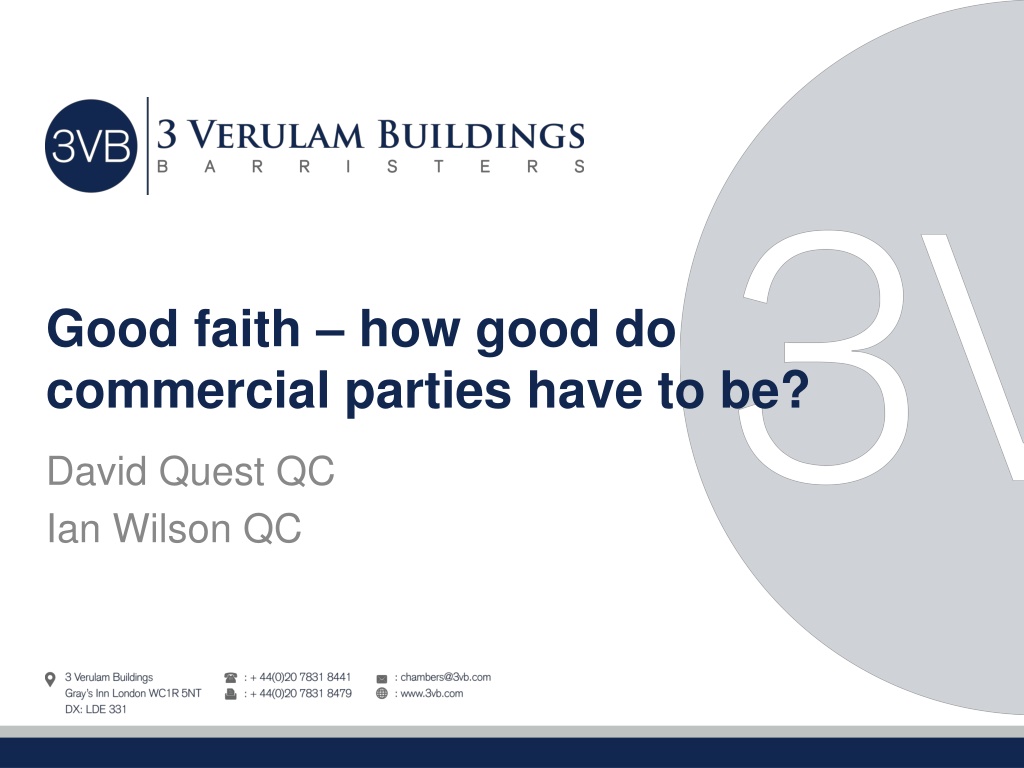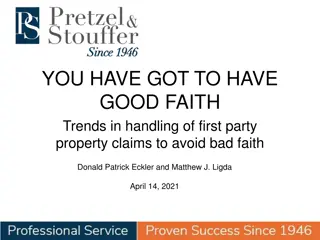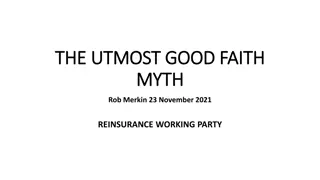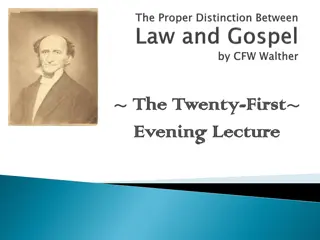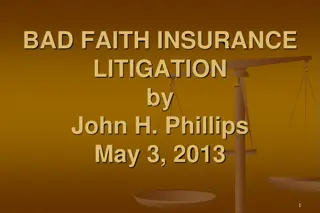Understanding the Importance of Good Faith in Commercial Relationships
Exploring the concept of good faith in commercial dealings through various legal cases and regulations. Emphasizing the duty of parties to act dutifully and in good faith, especially in the context of commercial agency contracts. The discussion delves into the obligations of commercial agents and principals to uphold good faith principles to maintain trust and fairness in their relationships.
Download Presentation

Please find below an Image/Link to download the presentation.
The content on the website is provided AS IS for your information and personal use only. It may not be sold, licensed, or shared on other websites without obtaining consent from the author. Download presentation by click this link. If you encounter any issues during the download, it is possible that the publisher has removed the file from their server.
E N D
Presentation Transcript
Good faith how good do commercial parties have to be? David Quest QC Ian Wilson QC
Good faith and cheating at cards Interfoto v Stiletto [1989] QB 433
Good faith and implied misrepresentation Marme v RBS [2019] EWHC 366 Property Alliance Group v RBS [2018] 1 WLR 3529 Geest v Fyffes [1991] 1 All ER (Comm) 672 IFE Fund v Goldman Sachs [2006] 2 CLC 1043
Good faith and contractual discretion Socimer International Bank v Standard Bank London [2008] EWCA Civ 116
Good faith and relational contracts Yam Seng v International Trade Corp [2013] EWHC 111 Sheikh Tahnoon v Kent [2018] EWHC 333
Good Faith: Commercial Agency Contracts Ian Wilson QC
The Commercial Agents (Council Directive) Regulations 1993
Reg 2(1): Commercial agent means a self-employed intermediary who has continuing authority to negotiate the sale or purchase of goods on behalf of another person (the principal ), or to negotiate and conclude the sale or purchase of goods on behalf of and in the name of that principal
Reg 3(1): In performing his activities a commercial agent must look after the interests of his principal and act dutifully and in good faith . Reg 4(1): In his relations with his commercial agent a principal must act dutifully and in good faith .
Reg 4(1): Duty of good faith owed by the principal Three cases: Page v Combined Shipping and Trading Co Ltd [1997] 3 All ER 656 Simpson v Grant & Bowman Limited [2006] EULR 933 Vick v Vogle-Gapes [2006] EWHC 1665 (QB)
Page v Combined Shipping and Trading Co Ltd [1997] 3 All ER 656 Application by agent for freezing injunction Principal had contractual discretion as to extent of any supplies to agent: no loss argument Threat by principal to cease supplies to agent Court of Appeal: arguable that Reg 4(1) prevented principal from relying on contractual right to supply zero
Simpson v Grant & Bowman Limited [2006] EULR 933 HHJ Alton: Not necessary to prove bad faith in sense of dishonesty or deliberate intention to damage. Sharp practice falling short of dishonesty or an intent to harm could well constitute a failure to act in good faith. However, Reg 4 did not import into the agency relationship: some general and broad obligation on the part of the principal to treat the agent fairly, the assessment of which having to be made from the perspective of the agent and without regard, or significant regard to the need of the business and the entitlement of the principal to make what appear to be proper commercial decisions as to the effective management of that business .
Vick v Vogle-Gapes [2006] EWHC 1665 (QB) Good faith obligation was at least as wide as the obligation of mutual trust and confidence upon employer and employee. The employer: shall not, without reasonable and proper cause, conduct itself in a manner calculated and likely to destroy or seriously damage the relationship of confidence and trust between employer and employee.
Reg 3(1) agents duty of good faith Rossetti Marketing Ltd v (1) Diamond Safe Co & (2) Solutions Marketing Ltd [2012] EWCA Civ 1021
